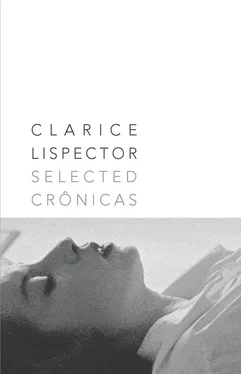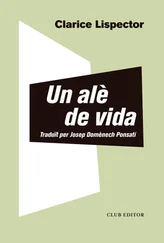It would never occur to me to keep an owl. But a little friend of mine found a baby owl grounded in the woods at Santa Teresa, all alone and missing its mother. She took it home, made it comfortable, fed it, consoled it and eventually discovered that it liked raw meat. When the baby owl became stronger she expected it to fly off at once, but the owl hovered nearby, before setting off in pursuit of its own destiny and being reunited with its own species. This strange bird had obviously become attached to my little friend and was reluctant to abandon her. It would fly off a little way and then come back almost immediately. Until finally, with one great effort, as if struggling with itself, the owl made a bid for freedom and went flying off to the ends of the earth.
The rabbit’s silence, its habit of nibbling carrots ever so quickly — its uninhibited copulation at frequent intervals and with the utmost haste — who knows why I should find the sexual habits of rabbits so futile and, to all appearances, so very superficial? Rabbits make no impression on me whatsoever; we are simply worlds apart, entirely different, our species mutually alien. Strange how the rabbit can be imprisoned and seem almost resigned yet cannot be domesticated: its resignation is merely apparent. In fact, however futile and nervous it might be, the rabbit is free and this is somehow at odds with its superficiality.
As for horses, I have written at length about horses roaming the prairie in A Cidade sitiada [The Besieged City] where the white horse, the king of nature, neighs triumphantly at dusk into the remote horizon. And I have experienced a close rapport with horses. I can recall in my youth standing proud and erect in imitation of the horse, as I stroked his glossy, velvety coat and ran my fingers through his wild mane. And what a perfect picture we made: ‘The maiden and the horse’.
Fish in an aquarium never stop swimming for a second. This disturbs me. Besides, I find fish in an aquarium insipid, shallow creatures. But perhaps I am wrong, for not only do they gobble up food but they even manage to procreate: so they must be living matter if they can do these things. What intrigues me is that, at least in the case of fish in an aquarium, they have no instinct: they eat until they are ready to burst, do not know when to stop and, all of a sudden, what you see are dead fish. They are nervous creatures when they are small, dangerous once they grow big. And furthermore they belong to an unknown world and that, too, disturbs me.
I must tell you an interesting little story. A Spanish friend of mine, Jaime Vilaseca, lived for some time with relatives in a tiny village lost amongst the snow-covered slopes of the Pyrenees. Winter invariably brought the starving wolves down into the village in search of food. Whereupon all the inhabitants moved indoors, taking their sheep, horses, dogs and goats with them. And there they remained, humans and animals snuggling up against each other in one room and listening to those ravenous wolves clawing at locked doors…
And I know a story about a rose, strange though it may seem to mention a rose when I am talking about animals. But this rose behaved in such a manner that it brings to mind the mysteries of instinct and intuition associated with animals. A medical acquaintance, Dr Azulay, is a psychoanalyst and the author of Um deus esquecido [A Forgotten God]. He was in the habit of taking a rose with him every other day to his consulting-rooms, where he would put it into one of those tall, narrow vases specially designed for a single rose. Every other day the flower would start to wither only to be replaced by a fresh rose. But there was one particular Rose. It was bright pink, the work of nature rather than artifice. The sheer beauty of that rose filled one’s heart with joy. Proudly displaying its opulent bloom, its thick, velvety petals, that rose gave the impression of standing upright in all its splendour and beauty. Well, perhaps not altogether upright, for with infinite grace it leaned ever so slightly forward on its tall, slender stem. An intimate relationship soon developed between Dr Azulay and that rose: he was full of admiration and the rose sensed his appreciation. The rose went on being glorious under his loving gaze and as the days passed she showed no sign of withering. The rose remained there in full bloom and as fresh as ever. And so she remained for a whole week. Eventually, the rose began to show signs of fatigue and finally died. With some reluctance my friend put another rose in her place. But he never forgot that rose. And some weeks later, one of his patients unexpectedly asked: ‘What became of that rose?’ Dr Azulay knew at once which rose the patient was referring to. That rose which had gone on living out of love had made an impression. His patient had observed how Dr Azulay used to gaze at that flower and nourish it with his own vital energy. The patient had unwittingly perceived that there was something going on between him and the rose. That rose — which I am almost tempted to call ‘ joie de vivre ’ — had so much natural instinct that both man and flower had experienced that deep rapport one only finds between man and beast.
Suddenly I feel unbearable pangs of nostalgia for my beloved Dilermando, the same nostalgia he must have felt when he was adopted by another family when I had to go and live in Switzerland. Alas, I was misinformed when someone assured me that the hotels where we were obliged to stay for several months would not accept animals. I cannot help smiling to this day when I remember how I once left Dilermando with a friend in Italy while I returned briefly to Brazil. Upon my return, I rushed to my friend’s house to collect Dilermando. We were already in the middle of winter and I was wearing a fur coat. The dog stood there staring at me, rooted to the spot. He then approached and caught a whiff of the fur which seemed to worry him as if he sensed the presence of some threatening animal. And to add to his confusion, he could also smell my perfume. The poor dog got into a terrible state and began chasing his own tail. Without moving, I waited for him to settle down and finally recognize me. Fussing over him would only have made matters worse. After a while I began to feel hot in the warm room and removing my coat I threw it onto a sofa some distance away. Whereupon Dilermando caught my scent and jumped straight on to my lap with one mighty leap, beside himself with excitement and licking and scratching my face and arms. I laughed with joy and shrugged off those superficial bites he tried to inflict. They were hardly the real thing. Nor did they harm me, for they were love bites.
Not to have been born an animal seems to be one of my secret regrets. Their call comes to me from some remote past and I can only respond with profound disquiet. Their call summons me.
On Sunday evenings, the entire family would go to the pier to watch the ships. They would lean over the parapet and, if Father were alive today, perhaps he would still be watching those oily waters which he used to examine so intently. His daughters would become vaguely uneasy, they would summon him to come and look at something more interesting: look at the ships, Daddy! they would point out to him impatiently. As darkness fell, the illuminated city turned into a great metropolis with high revolving stools in every café. The youngest daughter insisted upon sitting on one of those high stools and Father found this amusing. This was great fun. Then she would try to be even more entertaining just to please him, and that was not so amusing. She chose something to drink which was not expensive, although the revolving stool increased the price of everything. The rest of the family stood around, watching this ritual of pleasure. A child’s timid but voracious pursuit of happiness. This was when she discovered the Ovaltine they served in cafés. Never before had she experienced such luxury whipped up in a tall glass, made all the taller because of the froth on top, the stool high and wobbly, as she sat on top of the world . Everyone was watching. The first mouthfuls almost made her sick, but she forced herself to empty the glass. The disturbing responsibility of an unfortunate choice; forcing herself to enjoy what must be enjoyed, and thus adding the indecisiveness of a rabbit to her other weaknesses. There was also the terrifying suspicion that Ovaltine is good: it is I who am no good. She fibbed, insisting that her drink was delicious because the others were standing there watching her enjoy the luxury of happiness which cost money. Did it depend on her whether they believed or not in a better world? But she was extricated from this problem by her father, and she felt safe within this intimate circle, where to stroll holding hands constituted the family. On the way home, her father remarked: Without really doing anything, we have spent so much money.
Читать дальше












